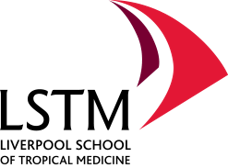FlowForma ® Process Automation helped the Liverpool School of Tropical Medicine (LSTM) create a new culture of engagement and collaboration that benefits all stakeholders.
The Processes:
The Pain Points:
The Benefits:
The Next Steps:

Liverpool School of Tropical Medicine (LSTM) is the oldest school of tropical medicine in the world, with hundreds of staff working across the globe. When the School was awarded HEI status in 2013, this presented an opportunity to leverage the very latest technologies and design its IT infrastructure from scratch.
The decision was taken to become a cloud-first organization, building an environment on Microsoft cloud services, including Office 365®, SharePoint Online®, Skype for Business® and Azure®. There was also a need to introduce Business Process Management (BPM) solutions, replacing paper based processes that were inefficient and made compliance a challenge.
“There was a big demand for electronic workflows, but progress was slow because we only had limited internal resources able to create them and outsourcing was expensive,” said Martyn Coleman, IT Systems Architect, Liverpool School of Tropical Medicine. “It was one piece of the jigsaw we were finding difficult to fit."
Several BPM products were trialled before LSTM came across FlowForma Process Automation. A successful workshop used real examples of existing workflow requirements, and convinced management and IT that they had found the missing piece.

Tightly integrated with the SharePoint platform, the no code FlowForma Process Automation tool is a perfect fit for LSTM and its cloud-first strategy. Eight people were trained by a local FlowForma partner, the first two workflows went live within a month. Others quickly followed and the solution was soon embedded in the organization.
One particular process around travel typified the paper dependency this registered charity was trying to escape. Sending staff to disease-endemic countries all over the world to undertake research and interventions, LSTM requires that employees assess the risks and get the appropriate level of sign-off before every trip. Four paper forms had to be filled in, with some duplication across forms.
“On the one hand, we needed the Travel Assist process to provide robust risk assessments,” explained Martyn Coleman. “On the other, we don’t want our talented academics spending hours filling in forms.”
Earlier attempts to introduce electronic systems that ticked both boxes had failed. FlowForma Process Automation succeeded for many reasons, not least because it leveraged the SharePoint investment, making it easier to create new flows and share them. It addressed the complexities of the travel requirements without being too onerous to complete.
Rather than simply replicate paper-based processes, it introduced new efficiencies and encouraged cross-department engagement. “The best thing about FlowForma Process Automation for me is that you can come up with a specification to deliver a solution that involves all the stakeholders,” said Coleman. “In the case of Travel Assist, there were a couple of curve balls around the process that we were able to address very quickly because of the flexibility and ease of use of FlowForma Process Automation.”
Self-service components make it more accessible to users, while links from inside the system to outside sources, like the government travel advice service and travel health advice providers, made risk assessment easier. “We get good quality compliance data out of Travel Assist and a way to nudge travellers along on a process they have to complete,” said Coleman.
LSTM has launched 65 workflows in the 14 months since FlowForma Process Automation was deployed. An organization that was once “awash with paper form based processes” is seeing huge efficiency gains. Finance flows have been particularly successful, replacing paper trails that depended on people being available for sign off. Requests for a bank transfer or foreign currency are now electronic processes, where authorization is just one in a series of automated steps.
FlowForma’s impact on the way LSTM works has been profound, according to Coleman, democratizing the development of process improvements. Departments are more involved than when they outsourced development to third parties. New processes are turned around more quickly and better aligned to the business need.
The intuitive interface of FlowForma Process Automation has been central to its success. “I have no development skills at all but I’m a very confident user of FlowForma BPM,” said Coleman.
FlowForma Process Automation has helped to encourage a culture of collaboration, “As soon as FlowForma Process Automation delivered a couple of high profile wins, everyone started to think about their own practices and how they could make them cross-departmental and improve them.”
Martyn Coleman has also been impressed by FlowForma as a solutions provider. “We have had a very good support experience and there has been a helpful exchange of information on both sides that has led to product improvements. Their interest doesn’t stop when you sign the invoice,” he said. “I really like the FlowForma team and I’ve only had positive experiences. We’ve been treated very well and have a high level of access to their expertise if we need it.”


 Take five minutes to listen to an interview with Martyn Coleman as part of the PEX Open House event in late September. In this audio clip, Martyn explains why LSTM needed a no code tool, why they chose FlowForma Process Automation and how they successfully built 80 workflows in 20 months.
Take five minutes to listen to an interview with Martyn Coleman as part of the PEX Open House event in late September. In this audio clip, Martyn explains why LSTM needed a no code tool, why they chose FlowForma Process Automation and how they successfully built 80 workflows in 20 months.
You can also visit our blog to learn more about Liverpool School of Tropical Medicine or read their customer case study in our latest eBook.

“In the case of Travel Assist, there were a couple of curve balls around the process that we were able to address very quickly because of the flexibility and ease of use of FlowForma Process Automation.”
"As soon as FlowForma Process Automation delivered a couple of high profile wins, everyone started to think about their own practices and how they could make them cross-departmental and improve them.”
1-2-1 Expert Support | Customized Trial | No Credit Card